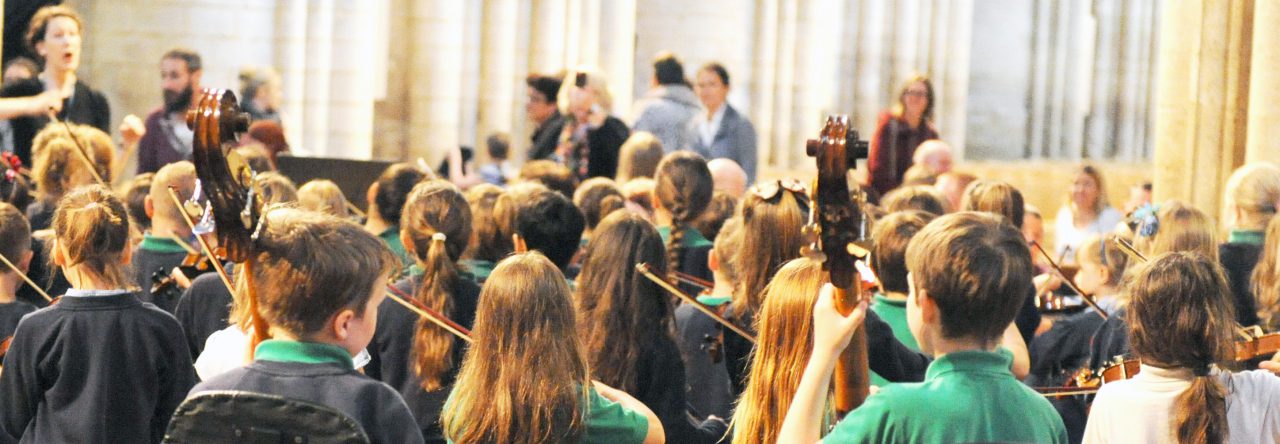Would creating a hierachy of music teaching skill be helpful at a time when there are official demands to identify ‘outstanding’ teachers? What happened to advanced skills teachers? And now comes the idea of ‘lead practitioners’? (1) UK government policy is looking to the profession to take a lead in developing pedagogy while nudging it in what is thought to be the ‘right’ direction. The recent visit of the Schools Minister Elizabeth Truss to Shanghai provides an exemplar of such policy strategy.
Might the skill of leading a musical workshop qualify as a more advanced music teaching skill, the skill of ‘workshop-ing’ to use a recently coined term?
The idea of the workshop is found at least as far back as medieval times. The workshop is thought of as a place of crafting, making, where people work hard and take a pride in their work. (2) As an educational idea it is more recent and denotes something other than the lesson, something more flexible, but no less rigorous. In the case of Music the guiding principle is that music is being made together and that the making process is not necessarily predicitable. There is space for experiment, exploration, discovery, and for the thoughts and ideas of the participants to play an important part is what is made.
Martin Said, for example, reflecting on his project approach to music teaching, highlights the rigour of a dialogic opening up of thought and understanding where the classroom is imbued with an ethos of making and crafting. This sounds very much like a workshop and there is something here that indicates the nuanced skill of a canny music teacher. Dare I say an example of ‘advanced skill’? (3)
Then there is Emily Crowhurst working with a year 7 class over six sessions sustaining a pattern of whole class music making interspersed with small group work feeding from the whole and back into it, and working towards a communal performance. (4) We would think of this as a workshop approach and requiring considerable skill.
In a NAME magazine article (5) Felicity Laurence sets out a form of workshop-ing, seen through the lens of Christopher Small’s concept of ‘musicking’ (6) and ‘based upon co-operation, democratic participation, mutual and respectful listening, and care for eachother’s differing musical values.’ Felicity made songs together with the children where their voices (7) were ‘priveledged from the first moments’ making for empathic relationships and songs of significance that changed not only the song makers but relationships within the class.’
I am looking forward to working with Felicity on Saturday, March 15 (see http://www.educ.cam.ac.uk/events/conferences/makingthinkingmusic/) when music teachers will be learning more about ‘Making and thinking music together’. You are welcome to join us.
I wonder what is meant when music teachers say ‘workshop-ing’? Presumably it is to be distinguished from something else. And would a hierachy of music teaching skill be helpful? I doubt it.
Next week I will write about ways in which the music room can help or hinder literacy.
End Notes:
(1) The policy of defining teacher competence in gradation from novice to expert has been a somewhat half-hearted aspect of government policy for a number of years. There is now a new wave of policy moving in this direction. In England there are Teaching Schools. Will all teachers in these schools qualify as lead practitioners?
(2) Sennett, R. (2008) ‘The Craftsman’, London: Allen Lane.
(3) See Martin’s guest editorial on the Teaching Music Website at http://buff.ly/1gOt8Rp
(4) Emily’s concise account of this work can be found in the Winter edition of the Music Mark magazine, 2013.
(5) Laurence, F. (2006) ‘Musicking, empathic experience and inclusion within the classroom’, National Association of Music Educators, Magazine Issue No. 19, 21-23.
(6) Small, C. (1998) ‘Musicking: The Meanings of Performing and Listening.’ Hanover, NH: Weslyn University Press.
(7) ‘Voice’. This term can be used with at least three meanings. 1. the singing voice 2. the expressive musical voice of the pupil in general 3. the pedagogically knowledgable voice of the pupil. Here it captures all three meanings.
